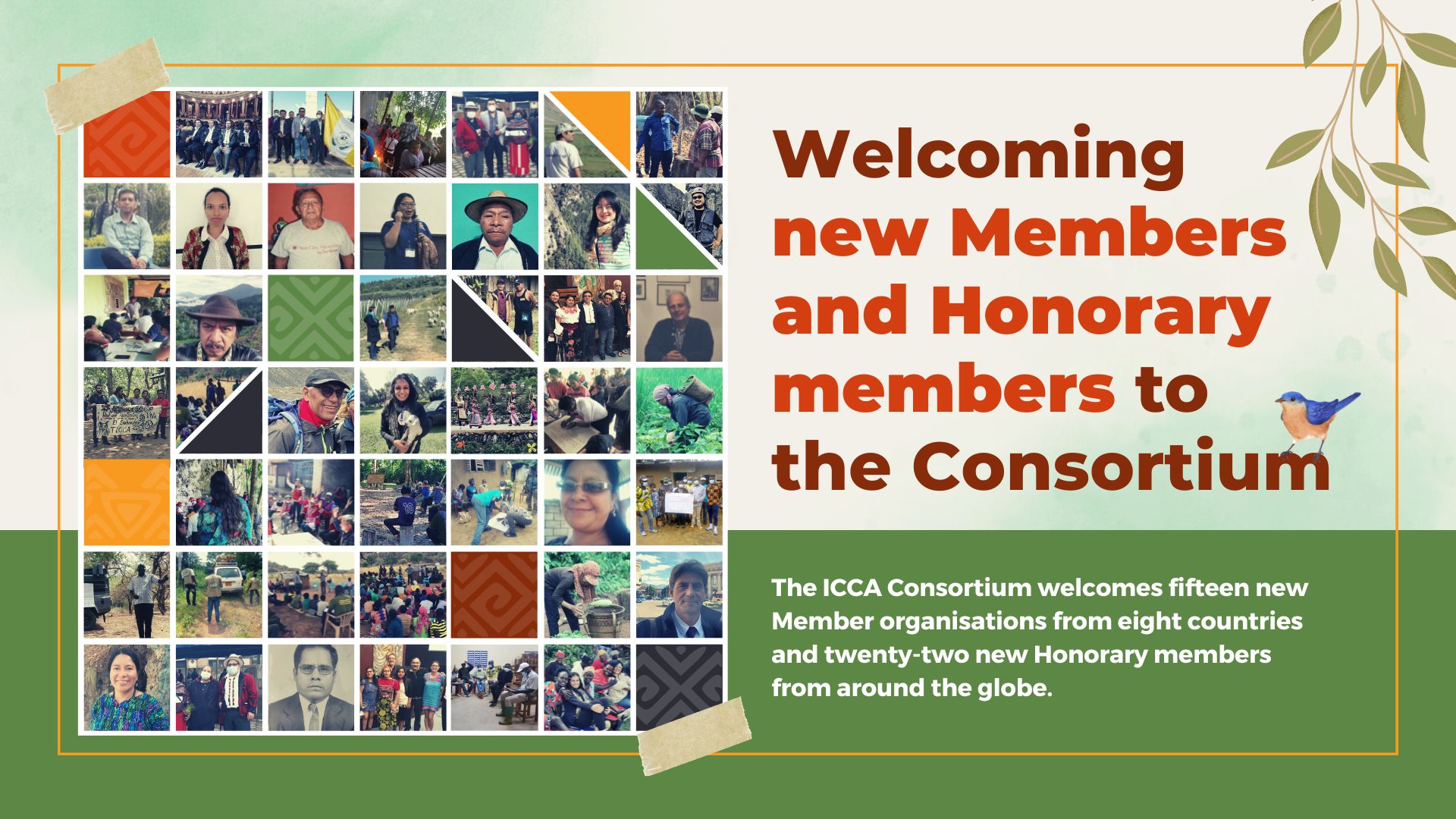By Alison Powell, Administration Coordinator, ICCA Consortium
The ICCA Consortium Membership Committee is pleased to announce that the second review period of ICCA Consortium Member applications and Honorary member nominations for 2022 has ended. The following organizations and individuals have joined the membership as our newest Members and Honorary members, respectively.
NEW MEMBERS
15 applications from Cambodia, Cameroon, Chile (2), China, Italy (7), Panama, Philippines, and Uganda
Indigenous Peoples’ and local community organisations, federations, networks and movements
Amministrazioni Separate per gli Usi Civici (ASUC) di Coredo is comprised of residents of a hamlet inside an alpine forest and grasslands in the Trentino region of Italy. ‘Civic Uses’ are a community’s common rights of access to land for wood, pasture and other land related benefits. Under Italian law, some portions of land were allocated to local communities, mostly to the residents of a hamlet, for common use under certain landscape restrictions. Trentino Province has emanated specific law to regulate the common rights through the institution of ASUC, legally registered entities regulated by a statute complying with the local law. More recently, by effect of National law 168/2017 on ‘domini collettivi’ (common land), the ASUCs have increased their autonomy and decision-making capacity. Like other ASUCs that have applied in the current round, the ASUC of Coredo work together on the maintenance and sustainable management of their collectively held forest, pastures and estate, allocation of grazing rights, and community-based activities such as volunteer work and supporting local civil society.
Recommended by Marco Bassi, ICCA Consortium Honorary member and regional Council representative for Europe
Amministrazioni Separate per gli Usi Civici (ASUC) di Rover-Carbonare is comprised of residents of a hamlet inside an alpine forest and grasslands in the Trentino region of Italy. Like other ASUCs that have applied in the current round, their main activities include maintenance and sustainable management of commonly held forest, pastures and estate, allocation of grazing rights, and community-based activities such as volunteer work and supporting local civil society.
Recommended by Marco Bassi, ICCA Consortium Honorary member and regional Council representative for Europe
Amministrazioni Separate per gli Usi Civici (ASUC) di Sopramonte is the organisation of residents self-managing 970 hectares of agro-silvo-pastoral land in the Trentino region of Italy. The activity of ASUC of Sopramonte and the direct participation of its members is primarily focused on the management of forests and pastures for proper use in the interest of the members of the collective domain and the integrity of the living environment and its preservation for future generations.
Recommended by Marco Bassi, ICCA Consortium Honorary member and regional Council representative for Europe
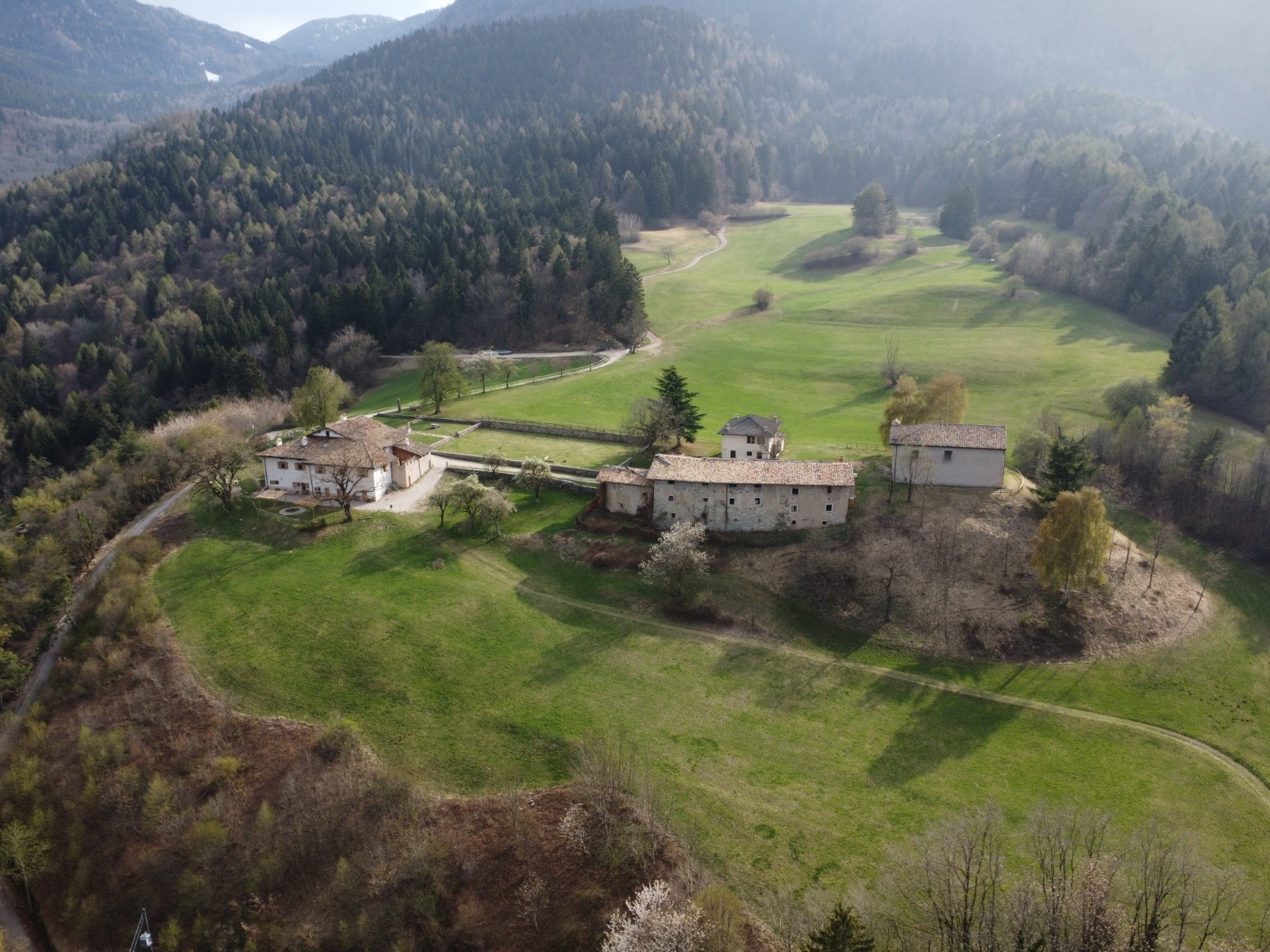
© ASUC di Sopramonte

© ASUC di Terlago
Amministrazioni Separate per gli Usi Civici (ASUC) di Terlago is a protected common moutain area made of 2080 hectares of mountains and three lakes nearby the main village, which is home to 712 families. The community has written rules concerning the sustainable use of natural resources since 1464. Today they want to strengthen their stewardship capacity. Many residents are newcomers in the locality, highly motivated in terms of building a strong relation with the territory while also addressing depopulation.
Recommended by Marco Bassi, ICCA Consortium Honorary member and regional Council representative for Europe
Amministrazioni Separate per gli Usi Civici (ASUC) di Almazzago is a territory in the Adamello-Brenta Nature Park in the Trentino region of Italy that includes 100 hectares of abundant pasture. One of the first initiatives since its formal inception in 2016 was mixed use for the water resources for irrigation and hydroelectric power, which generates funding for maintenance of forest roads, huts, paths, flower beds, and summer rest areas.
Recommended by Marco Bassi, ICCA Consortium Honorary member and regional Council representative for Europe

Water intake © ASUC di Almazzago
Amministrazioni Separate per gli Usi Civici (ASUC) di Castello is a locally managed area near Pellizzano in Trentino region of Italy. The association aims to concretize links between livelihood, energy and health, source of identity and culture, autonomy and freedom, connection between generations, preserving memories of the past and connecting them to the desired future. Their main activities include maintenance, allocation of grazing rights, and community-based activities such as volunteer work and supporting local civil society.
Recommended by Marco Bassi, ICCA Consortium Honorary member and regional Council representative for Europe
Cambodia Indigenous Peoples Organization (CIPO) was born out of the desire to help Cambodian Indigenous Peoples to take charge of their culture and tradition and their customary rights to land and natural resources in their communities as well as in Cambodia. CIPO is a totally Indigenous-led and -managed organization that combines the best knowledge of Indigenous Peoples (locally and internationally) and Cambodian society with the ability to creatively respond to Indigenous Peoples’ needs for support in Cambodia. The mission of CIPO is very much linked to the ICCA Consortium’s mandate and includes improving well-being, rights and sustainable development of Indigenous communities through strengthening Indigenous Peoples’ sense of ownership on land and natural resources management, economic development and culture/tradition conservation.
Recommended by Femy Pinto and Amy Maling of NTFP-EP, ICCA Consortium Member and host of regional coordination team for Southeast Asia
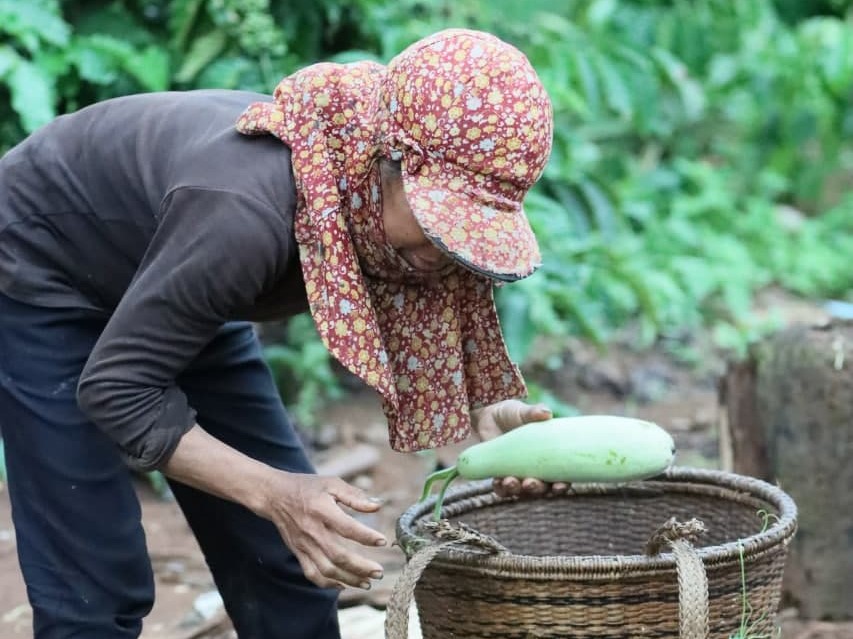
©CIPO
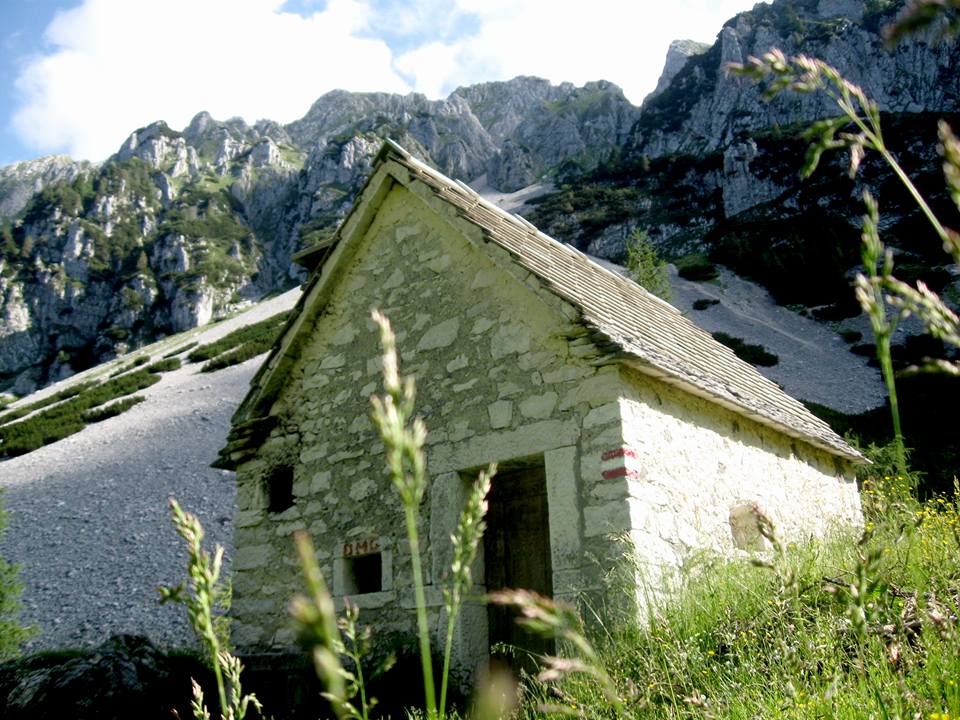
©Comunanza delle Regole dell’Alpago
Comunanza delle Regole dell’Alpago is a registered local-community Association (“comunanza”) of seven “regole” in Italy, referring to norms of access to natural resources of the common land, written down in the Middle Age, in the Alpine zone. Decisions are taken by assembly, each extended family (one ‘flame’) being represented by one person. Membership is based on descent from the ancient inhabitants. The Veneto region of Italy has legislated to revive this ancient institution for the sustainable management of common lands.
Recommended by Marco Bassi, ICCA Consortium Honorary member and regional Council representative for Europe
Comunidade Lof Cayun Panicheo is a Mapuche Williche Indigenous community in the Puel Mapu and the Futa Willi Mapu basin of Mapuche territory on the borders of Argentina and Chile. The community is devoted to preserving ancestral land, protecting natural resources and recovering ancestral spirituality and traditional ways of life, such as the practice of Mapu Ñuque medicine. To counter threats of development, the community has proposed creating a Mapuche Conservation Area called “Len Ko Winkul Mapu”.
Recommended by Observatorio Ciudadano, ICCA Consortium Member and host of the regional coordination team for the South Cone

©Lof Cayun Panicheo

Ngen Antillanka © David Nuñez
The Ñelay Mapu Community is a Mapuche Williche Indigenous community located in the Valle del Río Gol Gol in Chile. Their land is characterized by its high tourist interest due to its great biodiversity, volcanoes and glaciers and the innumerable sources of water, as well as the Puyehue National Park; despite this, they face constant threats from extractive resourcing, real estate and infrastructure projects. The community has been working directly with the Park to ensure their territorial and cultural rights are recognized and have been carrying out cultural mapping projects with ICCA Consortium Member organisation Observatorio Ciudadano.
Recommended by Observatorio Ciudadano, ICCA Consortium Member and host of the regional coordination team for the South Cone
Civil society and non-governmental organisations, networks with mixed composition and non-governmental research institutions focused primarily at local, national and/or regional levels
AJEMALEBU Self Help (AJESH) is a local non-profit organisation in the Southwestern and Littoral regions of Cameroon. Its mission is to improve the socio-economic conditions of communities through empowering community members to sustainably manage their natural resources. One strategy they have implemented is to use maps as a tool to raise communities’ voices and to defend their customary rights and territories. Their work has received several recognitions, among them, the honorific award in 2016 from the prestigious Momentum for Change Climate Neutral Now Initiative, launched by the Secretariat of the United Nations Framework Convention on Climate Change, as well as the Rainforest Foundation UK, for successfully bringing community voices to context-specific climate solutions.
Recommended by Samuel Nnah Ndobe, ICCA Consortium Honorary member
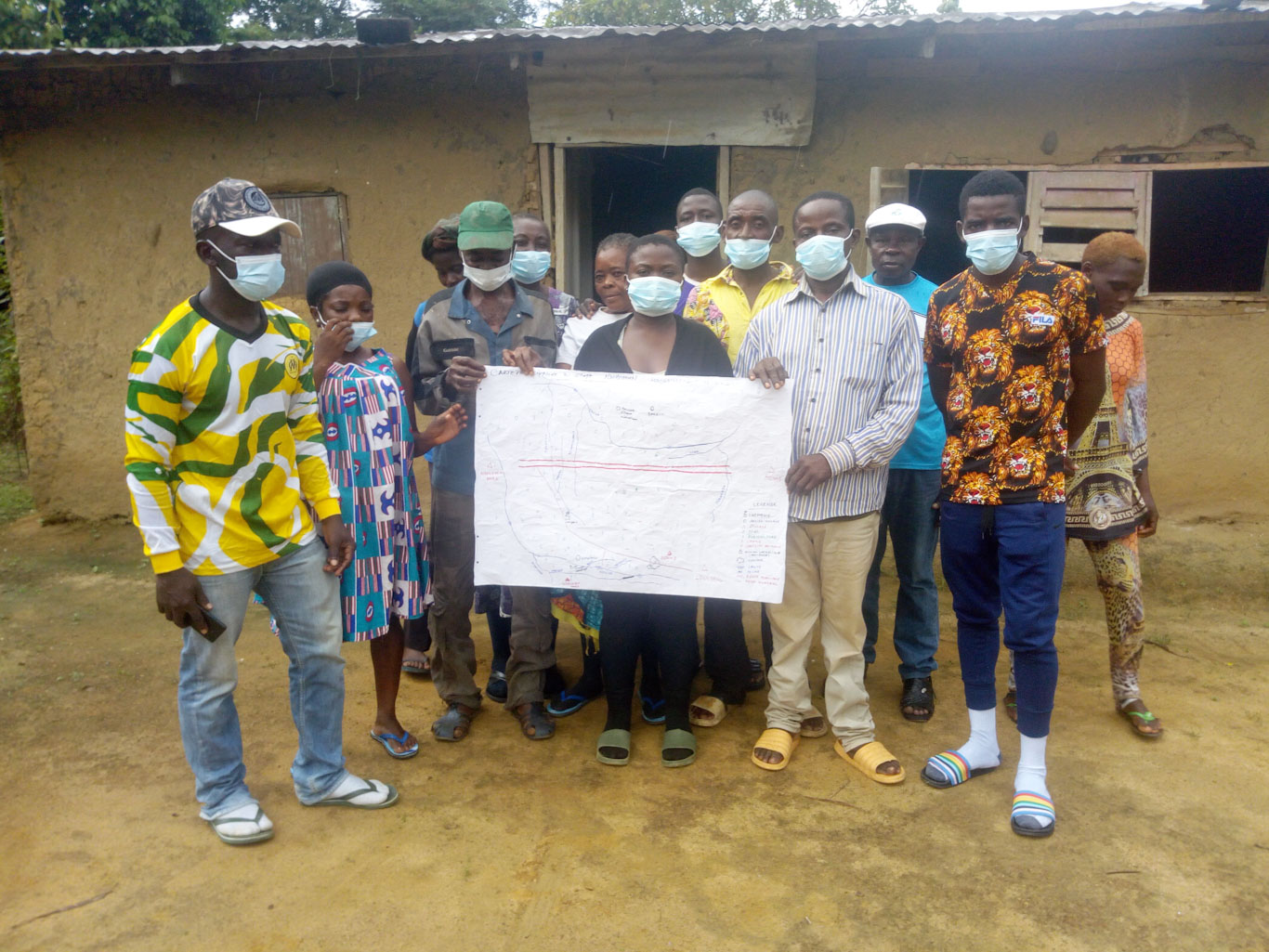
Community participatory mapping
© AJEMALEBU Self Help
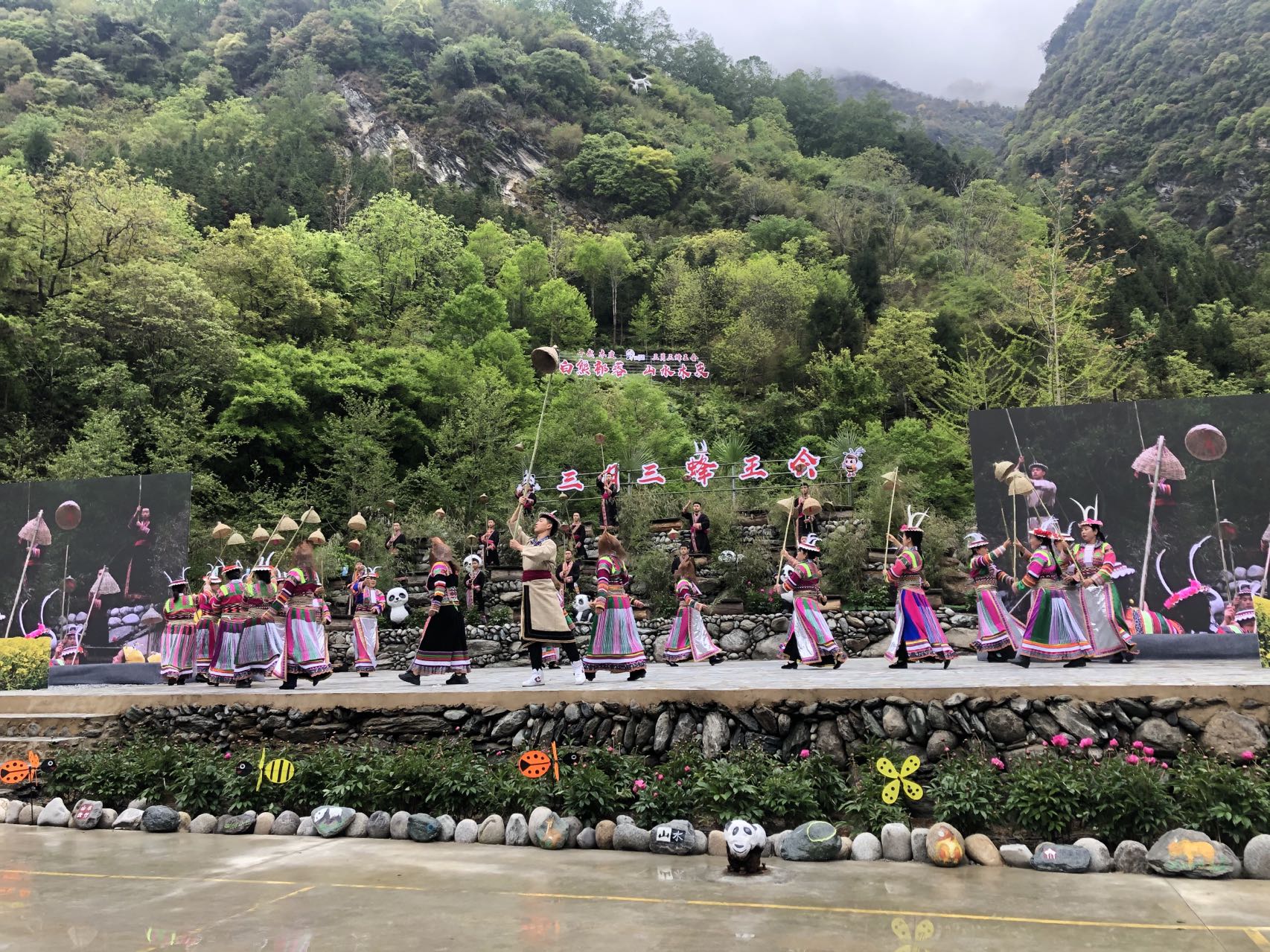
Traditional ceremony for local traditional bee-keeping culture in Guanba CCA.
© Shanshui Conservation Center
ICCA China Working Group was established in December 2013 with the mission to support and promote ICCA concept, practices, policies and development in China. The founding members are individuals associated with national and international NGOs and research institutions. Currently, there are 11 individual members and 6 organizational members, among which seven are ICCA Consortium Honorary members and three are ICCA Consortium Member organisations. All Working Group members have been deeply engaged in supporting community-based conservation efforts across a variety of ecosystems in China, from herders in Tibetan grasslands to fishing communities in eastern coastal ecosystems. Since its establishment, the China Working Group has compiled dozens of media reports to explain the ICCA concept and present international and domestic ICCA case studies and has organized ICCA exchanges and seminars in China such as the 2015 ICCA Conference in Guangxi Province and the 2021 hybrid workshop on ICCAs in Sichuan Province. Recently, Working Group members voluntarily translated the ICCA Consortium’s self-strengthening guidance into Chinese.
Recommended by Yingyi Zhang, ICCA Consortium Honorary member and regional Council representative for East and North Asia
Philippine Eagle Foundation (PEF) is a non-profit committed to promoting the survival of the Philippine Eagle, the biodiversity it represents, and sustainable use of forest resources for future generations to enjoy. Their main activities include research in culture-based conservation, public awareness campaigns, and conservation breeding of Philippine eagles. During the COVID-19 pandemic, PEF partnered with the Indigenous Obu Manuvu community of Davao City on Mindanao Island to perform monthly patrols to protect the Obu Manuvu ICCA from deforestation and degradation. They have implemented the Forest Guard program elsewhere in the country and with other Indigenous groups to save forests and prevent the extinction of previous rare birds.
Recommended by Tanya Conlu, ICCA Consortium Honorary Member
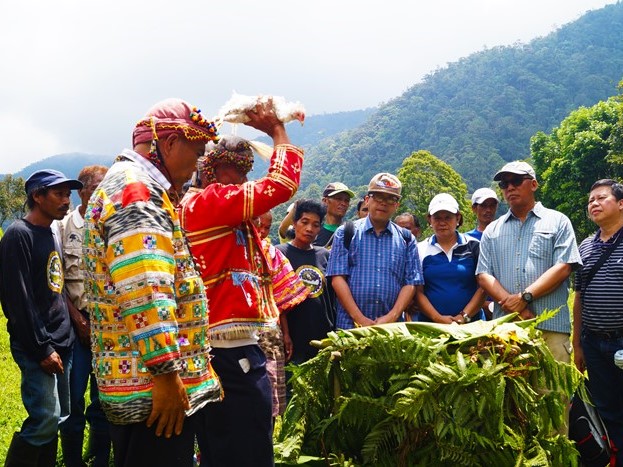
Indigenous ritual for conservation © PEF
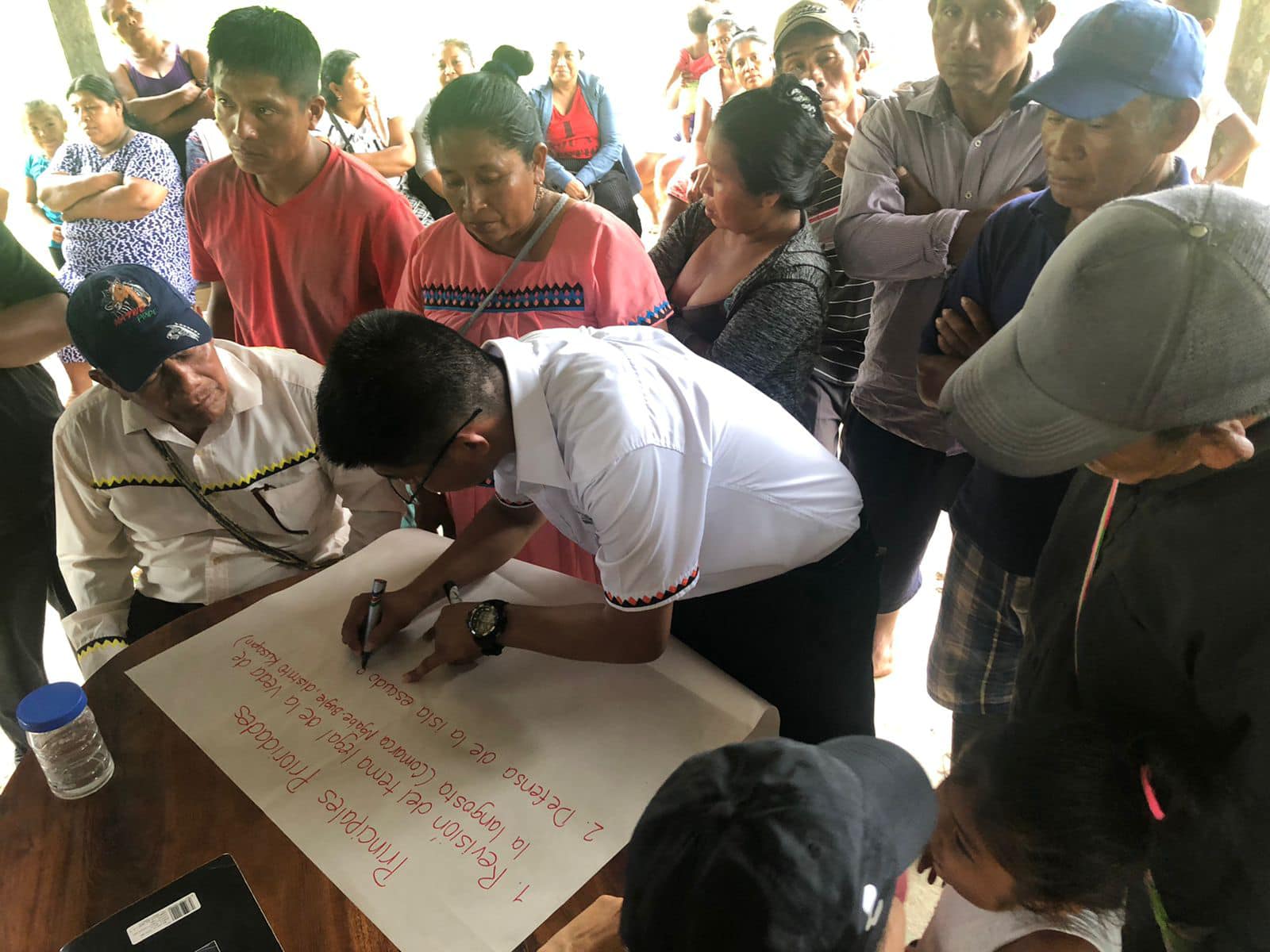
Priorización de amenazas al territorio © SITRAMAR
Sindicato de Trabajadores del Mar (SITRAMAR) is a trade union that was created to defend the Gñobe Bugle territory in Panama from industrial fishing and conventional conservation efforts to appropriate the Island of Veraguas. Since 2021, they have been active in helping to strengthen coastal communities throughout Mesoamerica. They are currently participating in the initiative to support marine-coastal territories of life in Mesoamerica, coordinated by ICCA Consortium Member CoopeSoliDar.
Recommended by U Yich Lu’um, ICCA Consortium Member and host of the regional coordination team for Mesoamerica
Umoja Wildlife Conservancies of Uganda is an NGO and local community and landowner-driven initiative to strengthen local community participation in managing wildlife on their land and to support development of strong conservancies for people and wildlife. From its establishment, Umoja embarked on mobilizing landowners and communities living with significant wildlife populations to form such conservancies. As a result, 16 conservancies are now formed and registered with an approximate total area of 8,000 square kilometers.
Recommended by Elaine Hsiao, ICCA Consortium Honorary Member
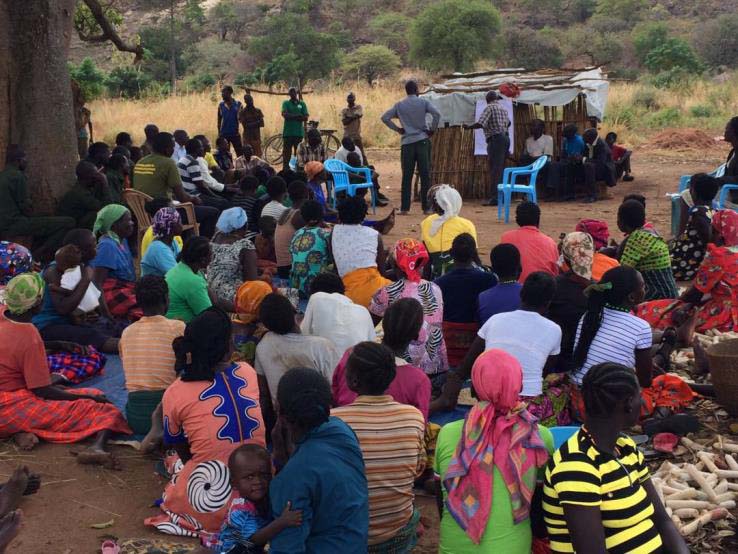
Team from Umoja explaining the roles of women and youth in conservancy management at Kaket Conservancy, Agago district February 2022 © Umoja
New Honorary members
22 total nominations (including eight women) working in the Philippines (3), Italy (3), Pakistan (2), Guatemala (10), Myanmar, India, Tanzania, and Madagascar.
Ajaz Ahmed (nominated by Marc Foggin, ICCA Consortium Honorary member and Plateau Perspectives, Member) has more than 15 years’ experience at both the national and international levels of forestry and environmental restoration, with a particular focus on conservation and management of Indigenous and Community Conserved Areas in Chitral, Pakistan. His expertise includes ecological assessment, ecosystem services promotion, and development and management of non-timber forest products for ecological and economic development. He is currently working as Provincial Coordinator for the Chilghoza Forest Landscape Project in Khyber Pukhtunkhaw in Pakistan, which is working for the conservation of Chilghoza forest ecosystems and NTFP promotion for forest landscape management. Ajaz has supported 26 ICCAs in Chitral through a complete inventory of ICCAs and management plans for two ICCAs.
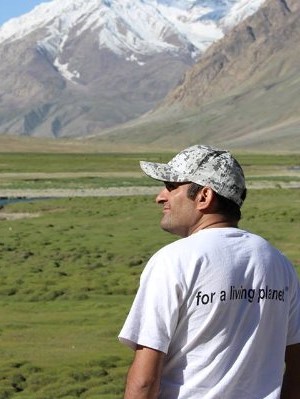
© Ajaz Ahmed
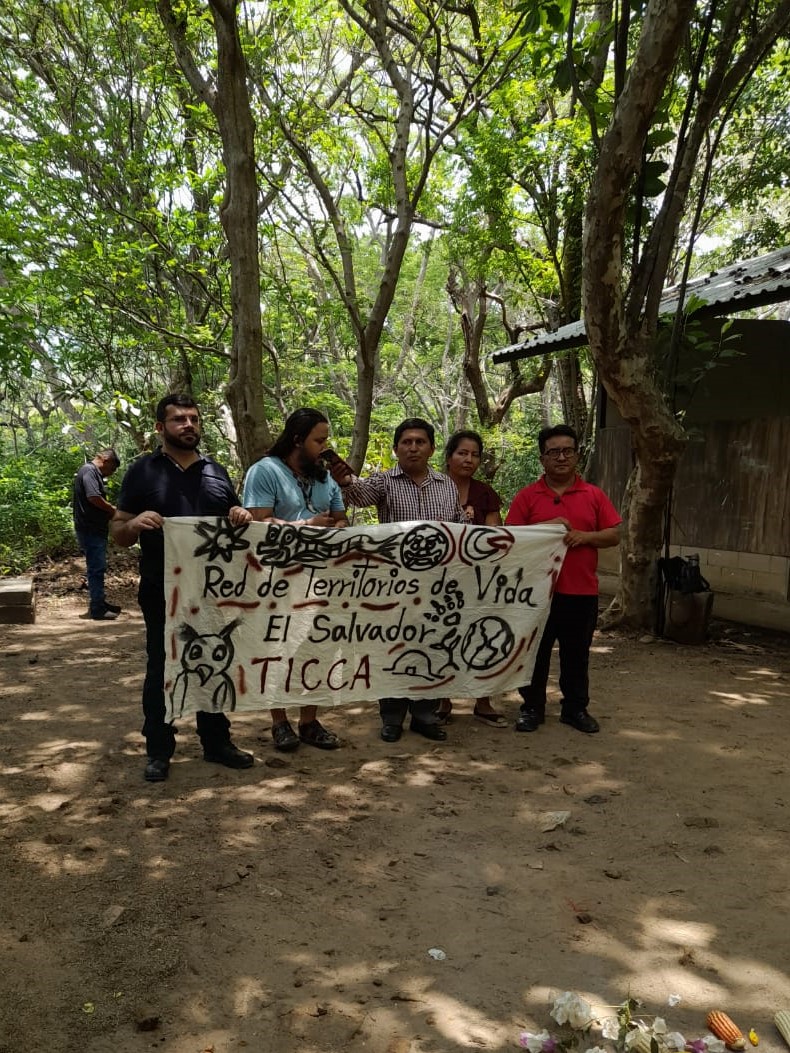
© Amado de Jesus Ramos Prieto
Amado de Jesus Ramos Prieto (nominated by Felipe Gomez, ICCA Consortium Honorary member, Oxlajuj Ajpop (Member) and Council representative for Mesoamerica) was born in the Nahua Indigenous territory in El Salvador. As a child and later as a young man he participated in the movements in defence of his Nahuat community in the context of political violence and civil war, including imprisonment in 1991. At the end of the civil war in El Salvador, together with other young people in his community, he formed the organization Los Pasos del Jaguar (ICCA Consortium Member) to reclaim the Indigenous culture and defend the territories being expropriated by large landowners. Amado Ramos now serves as President of the Council of the TICCA Network in El Salvador, where he continues to demand recognition of Indigenous peoples and ancestral lands.
Aman Ullah (nominated by Marc Foggin, ICCA Consortium Honorary member and Plateau Perspectives, Member) is a member of the Wuk̃hi (Wakhi) people of Shimshal Gojal in Northern Pakistan. He has initiated and led environmental education in Aga Khan Diamond Jubilee School Shimshal in collaboration with Nihon University as the head of the school. Aman helped replicate the program in Wakhan District of Badakhshan, Afghanistan, in collaboration with Wildlife Conservation Society USA. It was the first of its kind as it focused on project-based learning in the schools and for the local communities. Aman’s other passion is working on early childhood development and training in the endangered Wakhi language.
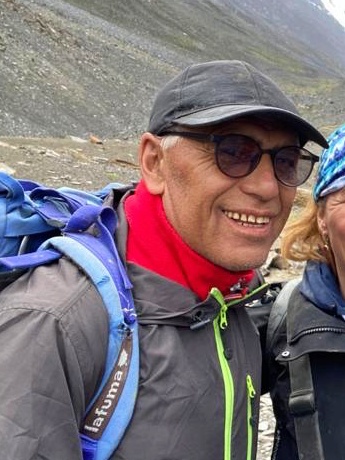
© Aman Ullah

Esquipulas Palo Gordo Tacana Volcano and Tajumulco Volcano in the background, September 2022 © Angel Ivan Yoc Gomez
Angel Ivan Yoc Gomez (nominated by Felipe Gomez, ICCA Consortium Honorary member, Oxlajuj Ajpop (Member) and Council representative for Mesoamerica) is an agronomist working in the territory of the Mam people in Guatemala and in the Suchiate river basin in Mexico where he develops individually- or collectively-handcrafted native products (wild mushrooms, native fruits, products derived from agriculture such as vegetables, coffee, cocoa, vanilla and others), as well as promoting ecotourism near the Tajumulco Volcano, which stands as an icon in the region. He has participated in proposals for the appropriate use of environmental goods such as water, soil, wildlife, sustainable forest management, community hydroelectric plants, mining exploration, and recently the identification of archaeology in the area and ancestral knowledge from the cosmo-vision of the Maya-Mam people.
Aye Myat Thandar (nominated by Amy Maling, ICCA Consortium Honorary member) is a Burmese community leader currently working for WWF Myanmar. Her work is mainly related with community-based conservation area management. She sees the top-down approach of conservation as a big mistake and believes that working with Indigenous Peoples and local communities for conservation will bring greater well-being to the world.
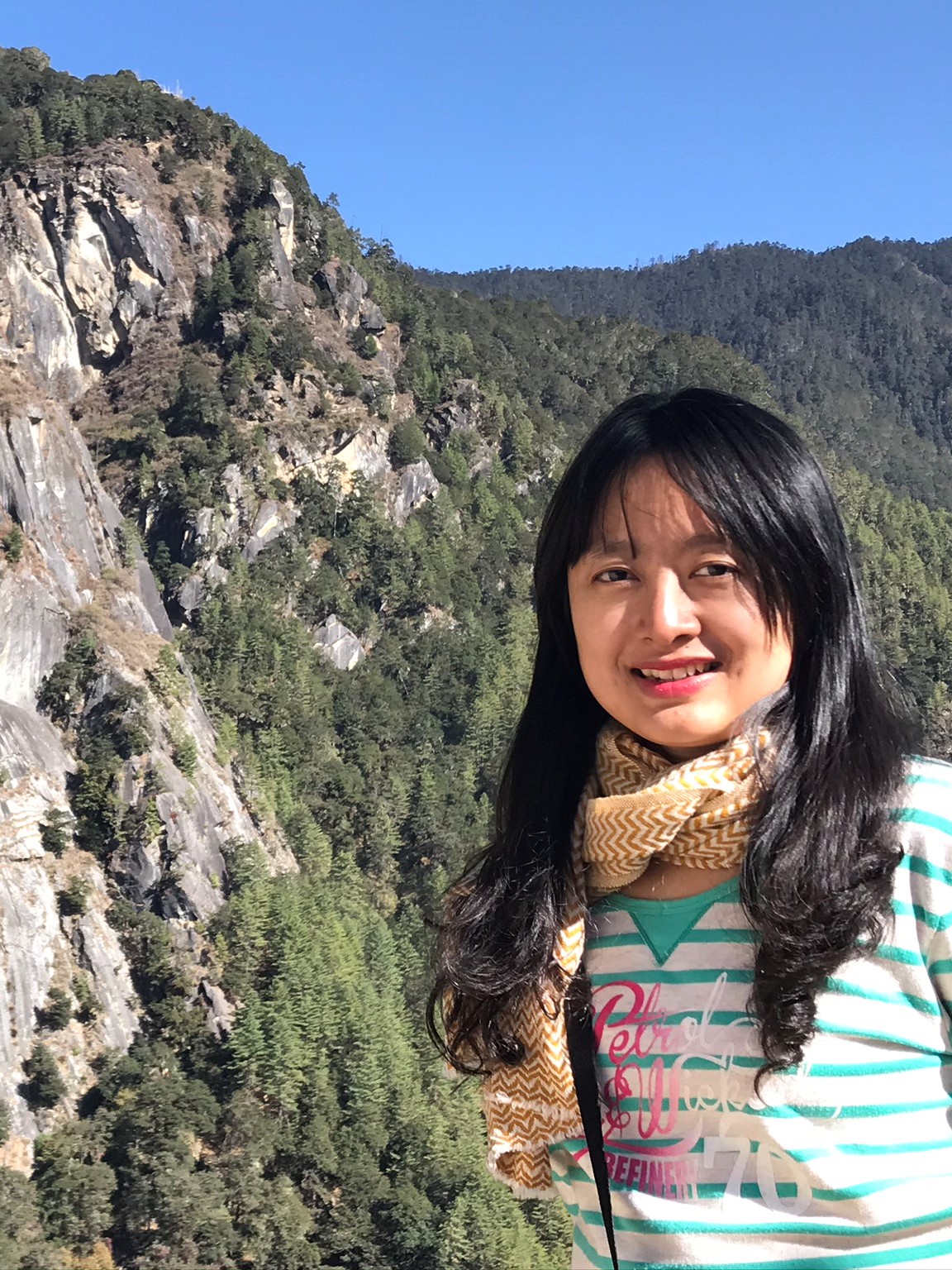
Embracing the rich traditional culture © Aye Myat Thandar

© Benito Ovalle Tubac
Benito Ovalle Tubac (nominated by Felipe Gomez, ICCA Consortium Honorary member, Oxlajuj Ajpop (Member) and Council representative for Mesoamerica) is a legal representative of the communal lands of San José Poaquil in Guatemala. His job is to ensure reforestation, monitoring and maintenance of communal lands and submit semi-annual reports to the municipality and Indigenous mayor’s office. He joined the TICCA Network of Guatemala as a member of the board of directors in April 2022.
Carlos Enrique Gabriel Orozco (nominated by Felipe Gomez, ICCA Consortium Honorary member, Oxlajuj Ajpop (Member) and Council representative for Mesoamerica) is a Maya-mam teacher in primary and secondary schools in the Comitancillo municipality of Guatemala, where he promotes care of the environment and ancestral traditions. He is a member of the TICCA Network of Guatemala, where his role is to support actions at local, regional, and national levels.

© Carlos Enrique Gabriel Orozco

Change of Authorities of the 48 cantons for 2020-2021
© Edy Alexander Caniz
Edy Alexander Caniz (nominated by Felipe Gomez, ICCA Consortium Honorary member, Oxlajuj Ajpop (Member) and Council representative for Mesoamerica) is a Mayan-Kiche community leader with experience in local natural resource and water management. In 2020, he served as communal mayor of his community (Chuicruz) and member of the Council of communal mayors of the 48 cantons of Totonicapán, which is a case study in the ICCA Consortium’s 2021 report on territories of life. He is also a member of the Oxlajuj B’aqtun Maya Science Research Center (ICCA Consortium Member) and did an Indigenous internship with the Global Environment Facility Small Grants Programme.
Federico Bigaran (nominated by Marco Bassi, ICCA Consortium Honorary member and Council representative for Europe) is a retired agronomist in Trento, Italy. In collaboration with the University of Bologna, he has carried out research in the field of irrigation and organic agriculture. He developed several initiatives on biodiversity for food and agriculture and for the conservation of local traditional breeds and vegetable resources, focusing on herders and rural commons in the Trentino region of Italy. He designed and implemented various European and national projects aimed to enhance local food products and the integration of agricultural activities with tourism, handicrafts and agroecology. He is the author of various publications concerning irrigation, community policies of mountain farming, and medicinal plants.
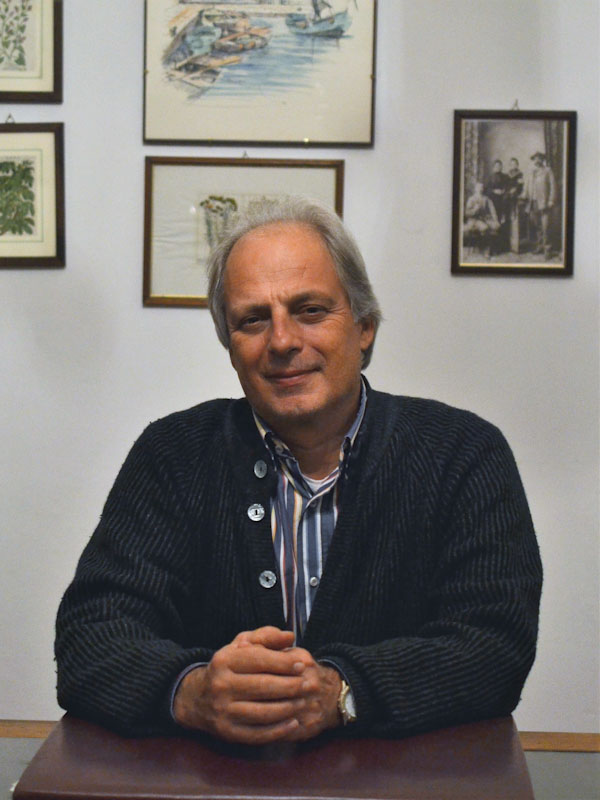
© Federico Bigaran
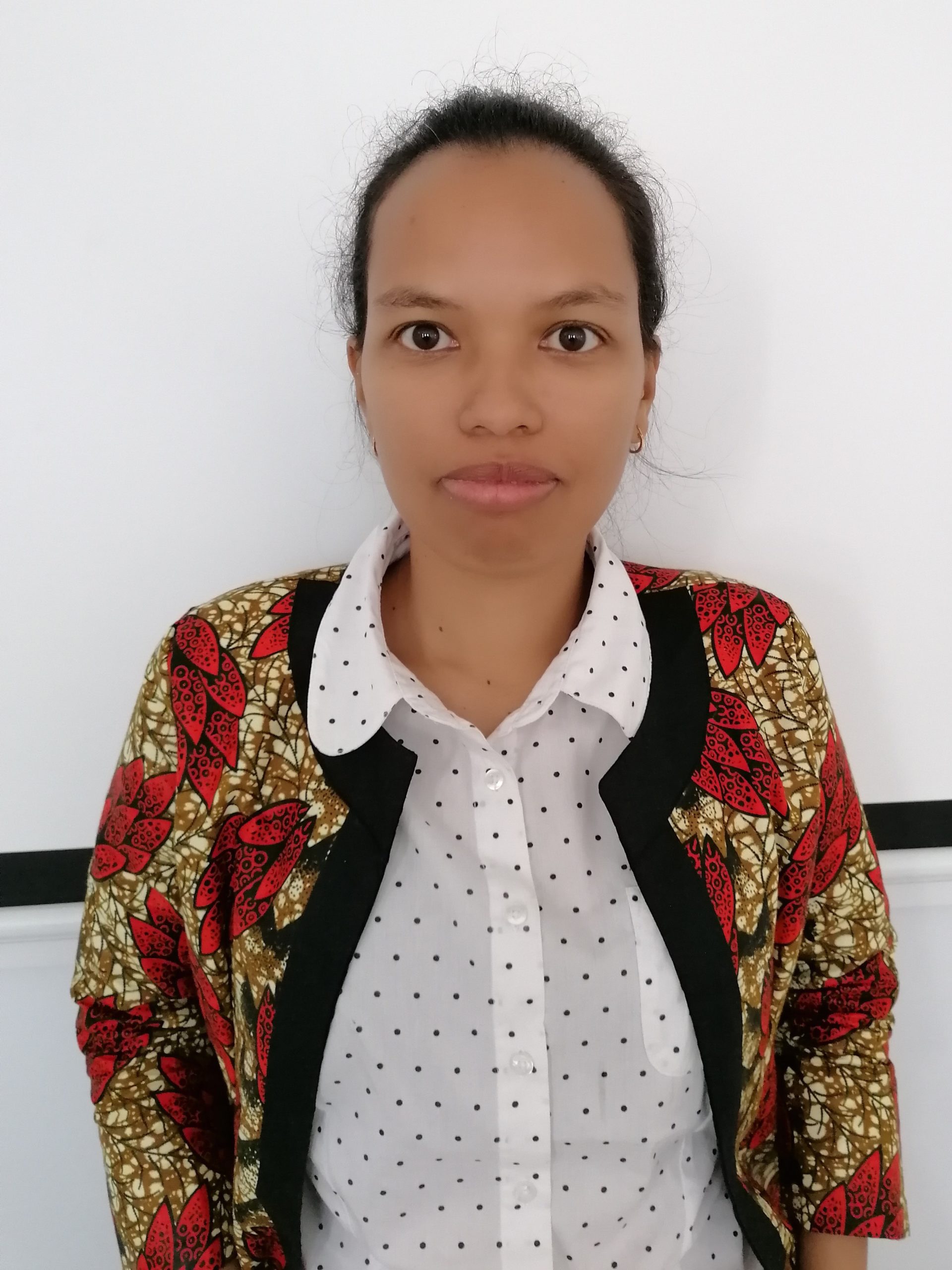
© Felana Rakotovao
Felana Rakotovao (nominated by Vololoniaina Rasoarimanana, ICCA Consortium Honorary member) first became familiar with the APAC-Territory of Life concept during an internship with the GEF Small Grants Programme in Madagascar. During this period, she witnessed the impetus and birth of the “Fokonolona” natural resource managers’ movement in Madagascar in the establishment of their national network TAFO MIHAAVO (ICCA Consortium Member). From 2014 to 2017, she served as TAFO MIHAAVO’s Technical Secretary. Currently, she is the interim country representative for the international organization Rainforest Foundation Norway (RFN) in the Democratic Republic of the Congo, which is a rights-based tropical forest conservation organization. Prior to this, Felana was the coordinator of RFN’s “Indigenous Peoples” program, where she provided technical and strategic support to Congolese civil society organizations to promote the rights and territory of Indigenous Pygmy peoples.
Makala Jasper (nominated by Emmanuel Sulle, ICCA Consortium Honorary member and Regional Coordinator for East Africa and Horn of Africa) is a Co-founder and Chief Executive Officer of Mpingo Conservation & Development Initiative (MCDI), a national conservation organization based in Kilwa District-Lindi Region of Tanzania with the aim to simultaneously address the social, economic and environmental challenges facing the forestry sector there. Through MCDI, Makala has pioneered community-based forest management and enterprise in Tanzania. MCDI currently provides support to 91 villages covering more than 600,000 ha of natural forests in 13 Districts across Tanzania. Makala holds a BSc in Forestry and an MBA in Leadership and Sustainability. He is a skilled forester, a dedicated and passionate conservationist who has won various awards and served on many task forces, all in the name of conservation. He is currently a Board of Trustees member to the Eastern Arc Mountains Conservation Endowment Fund.

Makala advising local communities in Ngea village Forest Reserves on safe & efficient harvesting practices and forest management practices. © MCDI

© Marco Tulio del a Cruz
Marco Tulio del a Cruz (nominated by Felipe Gomez, ICCA Consortium Honorary member, Oxlajuj Ajpop (Member) and Council representative for Mesoamerica) is a coordinator of the representatives of the TICCA Network in Guatemala and elder community leader of the Xinka Community in Chiquimulilla, Guatemala. Since the 1970s, he has played a vital role in defence of his community’s territory; legal recognition was finally granted in 1996. Since then, the community has voluntarily planted thousands of pine trees for sustainable forestry projects. Mr. Cruz served as President of the Association for the Improvement of the Xinka Las Lomas Indigenous Community from 2012-2014 and has worked in collaboration with Oxlajuj Ajpop (ICCA Consortium Member) and Mesa Indígena del Cambio Climático.
María Ajpacajá Xocol (nominated by Felipe Gomez, ICCA Consortium Honorary member, Oxlajuj Ajpop (Member) and Council representative for Mesoamerica) is a Mayan K’iche’ teacher in Santa Catarina Ixtahuacán, Guatemala. She teaches primary education, is a member of the ancestral land commission of her people, and a member of the Council of the Territories of Life TICCA Network in Guatemala. She is currently supporting a group of women and youth to promote community economy and recovery of ancestral music with instruments of the Mayan K’iche’ people.
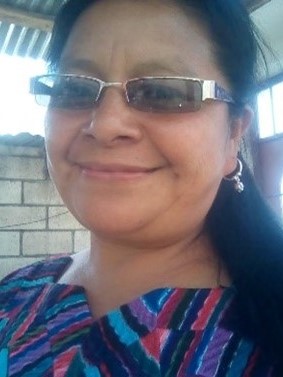
© María Ajpacajá Xocol
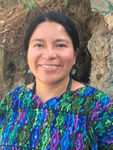
© María Salome Huinac Xiloj
María Salome Huinac Xiloj (nominated by Felipe Gomez, ICCA Consortium Honorary member, Oxlajuj Ajpop (Member) and Council representative for Mesoamerica) is a Maya K’iche’ woman and National Technical Coordinator of the Network of Territories of Life TICCA Network of Guatemala. She holds a Bachelor in Psychology and a Masters in Central American Rural Education. As a member of the Oxlajuj B’aqtun Research Center, she works with communities on the promotion of women’s rights, radio programs in the K’iche’ language and the promotion of Intercultural Bilingual Education, specifically in the training of professionals with a focus on the defence of their cultural identity and appreciation of the elements of their community. She is also Ajq’ij (a spiritual guide) and promotes respect and rescue of the essential elements of the culture, as well as sacred places.
Mario Rolando Pic Itzol (nominated by Felipe Gomez, ICCA Consortium Honorary member, Oxlajuj Ajpop (Member) and Council representative for Mesoamerica) is a Mayan-Kaqchikel cooperative farmer in Guatemala. Throughout the years, he has advocated for community environmental rights and defended communities against unjust environmental policies and corporate powers, especially fighting against the energy and transportation company TRECSA. From 2016 to 2019, he participated as President of the Surveillance Commission of the Cooperative Cuatro Pinos and is currently part of the Council of Ancestral Authority in Santiago Sacatepequez.
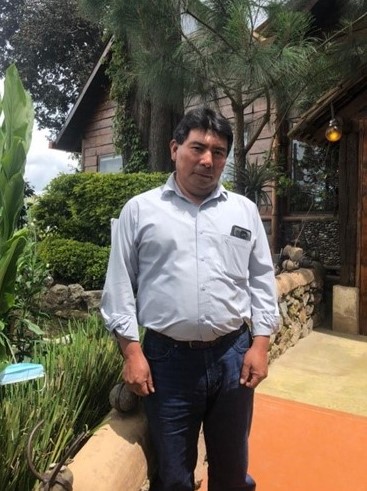
© Mario Rolando Pic Itzo
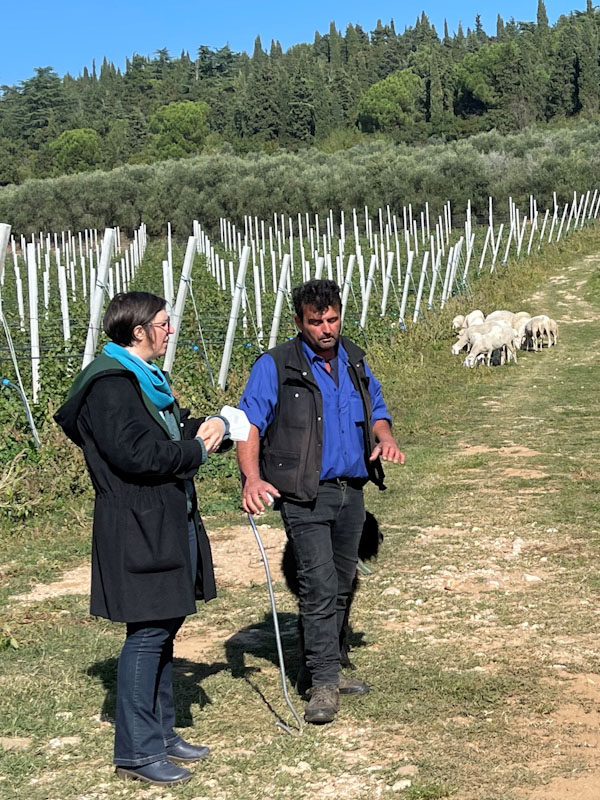
Marta interviews shepherd Alessandro © Marta Villa
Marta Villa (nominated by Marco Bassi, ICCA Consortium Honorary member and Council representative for Europe) is an anthropologist based at the University of Trento in Italy, which is also the most active research centre on Italian rural commons. She has Ph.Ds in Alpine Anthropology and the history of the Alpine commons, with a particular interest in alpine transhumance. Marta has coordinated several events and wrote extensively on sustainable agriculture, Alpine commons, and local breeds. She also took a lead organizational role in the ICCA Consortium/Club UNESCO meeting with representatives of the Asuc (Commons of Trento Province) and protected areas’ governmental officers.
Mauro Iob (nominated by Marco Bassi, ICCA Consortium Honorary member and Council representative for Europe) is a lawyer engaged in the direct defence of Italian collective domains in the provinces of Trento and Bolzano in Italy. The problems he addresses in the legal sphere range from management issues (such as methods of use in compliance with agro-silvo-pastoralism water use, concessions, compensation, responsibility), developing appropriate lines of action and issues of belonging and claiming ownership in favor of the inhabitants and local communities.
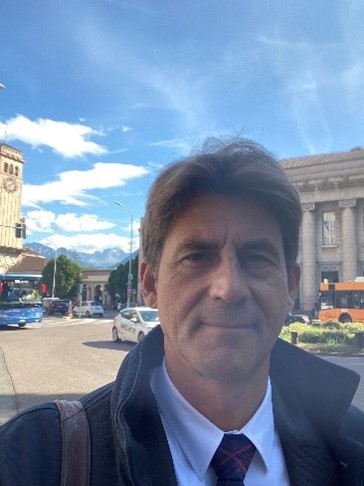
© Mauro Iob
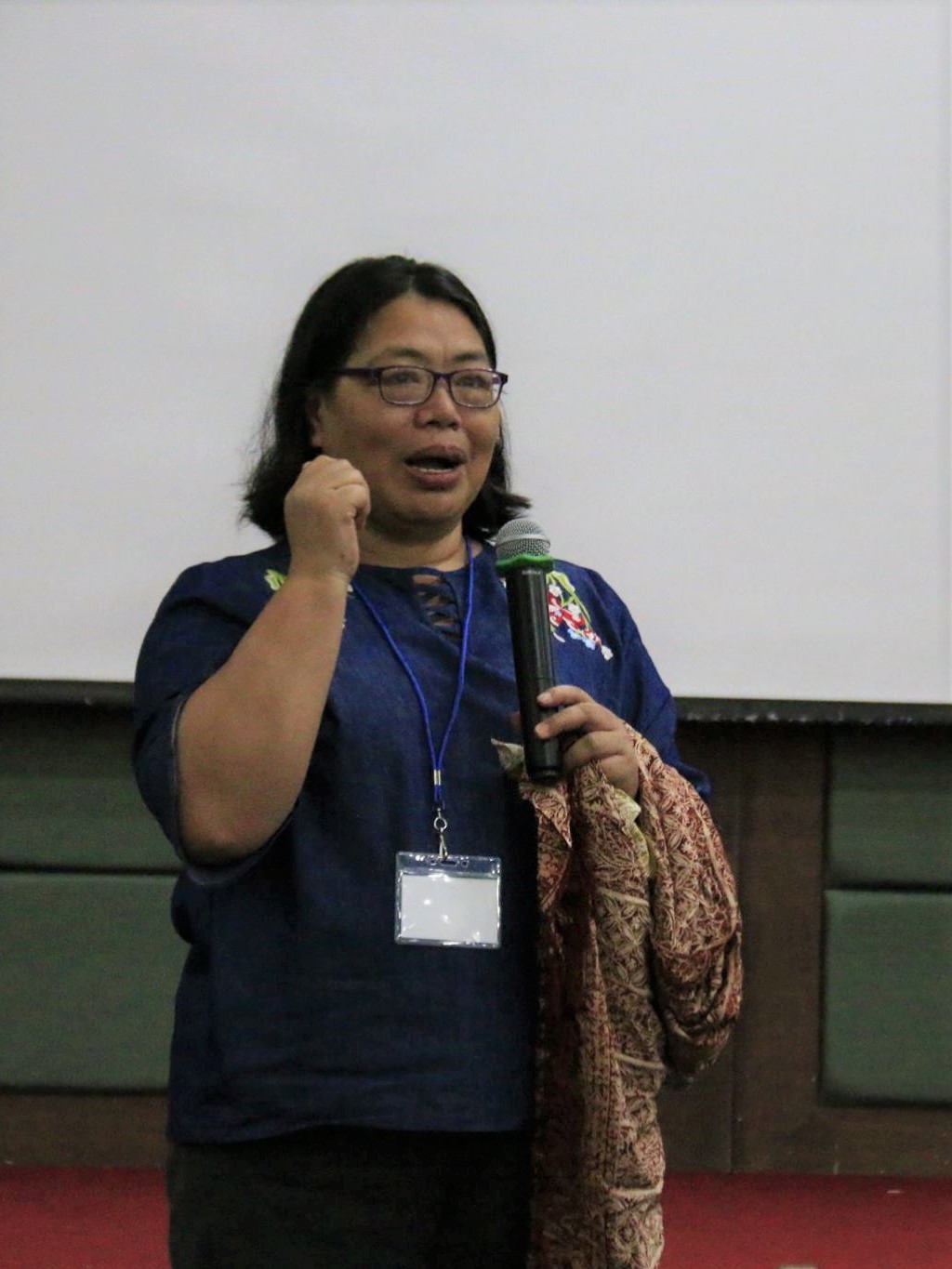
© Minnie Degawan
Minnie Degawan (nominated by Amy Maling, ICCA Consortium Honorary member and Regional Coordinator for Southeast Asia) started her career as a member of the technical support team of the Kalinga elders in the Philippines who brought the case of Macli-ing Dulag to the courts in Manila in 1981. She then felt compelled to join the growing mass movement in the Cordilleras leading to the formation of the Cordillera Peoples Alliance for the Defense of the Ancestral Domain. She served as their Community Education Officer before being elected as Secretary General. In this role, she participated in the drafting of the UN Declaration on the Rights of Indigenous Peoples and helped form international alliances of Indigenous Peoples’ Organizations. She then served as Executive Director of Dinteg – Cordillera Indigenous Legal Resource Center where she organized lawyers to provide legal services. Later, she became the Project Manager of a global GEF-funded project that sought to build the capacity of Indigenous Peoples’ Organizations to participate in biodiversity conservation. After the adoption of the UNDRIP, she decided to join conservation organizations to observe how UNDRIP is implemented on the ground. She joined WWF as safeguards specialist on Forest and Climate before joining Conservation International as the Director of its Indigenous Peoples Program.
Rigoberto Caal Ixim (nominated by Felipe Gomez, ICCA Consortium Honorary member, Oxlajuj Ajpop (Member) and Council representative for Mesoamerica) is a representative of the Indigenous organization Asociación Maya Oxlaju Na’leb’, which promotes the rescue and conservation of sacred places in Guatemala. As a result of their efforts, the Sacred Hill Chanyuk Saajchajom was declared Natural and Cultural Heritage of the country. He’s an advocate for ILO Convention 169 as a legal instrument for the defence of sacred sites. Rigoberto has also worked on the development and execution of the Reproductive Health Model Project for Q’eqchi’ Mayan Women and educational technology development projects for children and adolescents.
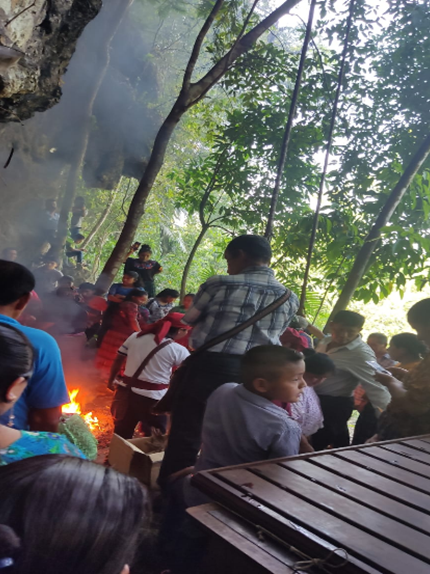
Activities with fellow members of the Pikba de San Pedro Carcha Alta Verapaz community © Rigoberto Caal Ixim
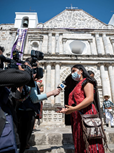
© Rosalina Hernandez
Rosalina Hernandez (nominated by Felipe Gomez, ICCA Consortium Honorary member, Oxlajuj Ajpop (Member) and Council representative for Mesoamerica) is a Maya-K’iche’ woman with a Bachelor in Pedagogy and Educational Administration and Environmental Studies, and currently in the last quarter of a Masters of Human Resources Management. She is the Assistant of Extracurricular Education in Quiché, Guatemala, and co-author of the book “Memorias de un Pueblo San Andrés Sajcabajá”. As a member of the Oxlajuj B’aqtun Research Center and TICCA network of Guatemala, she supports social, environmental and eco-cultural projects and the movements of Indigenous Peoples in her region.
Shruti Ajit (nominated by Neema Pathak Broome, ICCA Consortium Regional Coordinator for South Asia and Kalpavriksh, Member) has been working on research and advocacy on community-led and community -based conservation since 2015, when she joined Kalpavriksh Environment Action Group (ICCA Consortium Member), which aimed to challenge the dominant narrative of exclusionary conservation through inclusive policies and evidence building. She has also worked with Pastoral Raika women in Rajasthan, India and has been engaged with processes of gender and forest rights at national and regional levels. She is part of the core group of the Global Youth Biodiversity Network, India chapter, and has been engaging with youth in building awareness and participation on issues of biodiversity conservation in India. Currently, she is the Programme Coordinator with Women4Biodiversity, working on building gender responsive approaches to biodiversity governance.
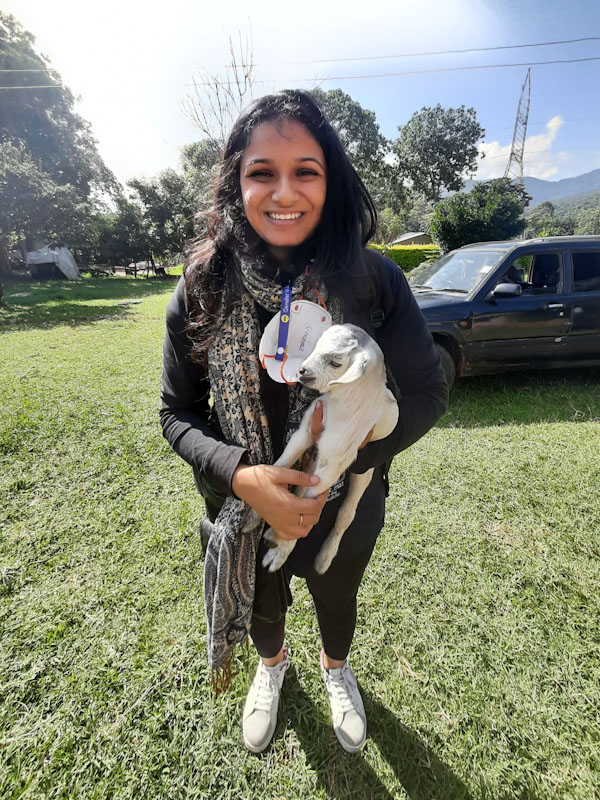
© Shruti Ajit
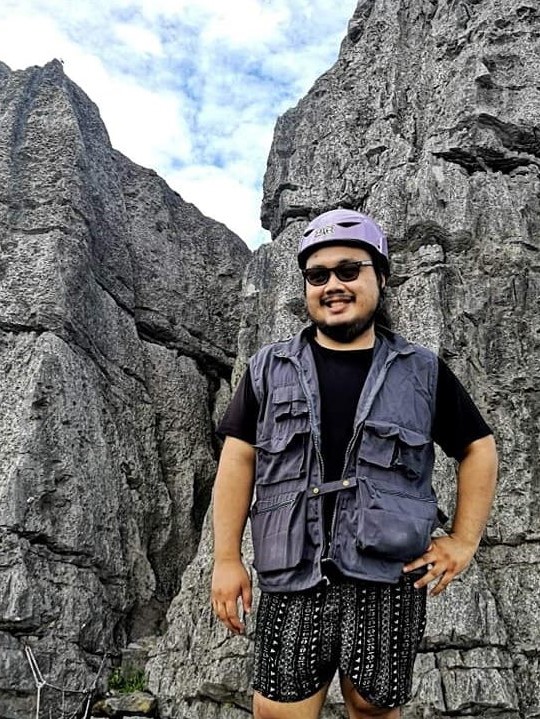
At the peak of a contested territory of the Masungi Georeserve and the Dumagat-Remontado of Antipolo and Tanay in the Province of Rizal in the Philippines where Timothy assisted in conflict resolution initiatives between parties. © Timothy Salomon
Timothy Salomon (nominated by Amy Maling, ICCA Consortium Honorary member and Regional Coordinator for Southeast Asia) is a community psychologist by training who applies healing and conflict resolution techniques in community settings for land rights and environmental justice. He is a former public servant with the Office of the Presidential Adviser on the Peace Process (OPAPP) engaged in peacebuilding in armed conflict affected areas. He currently serves as the facilitator of the National Land Coalition in the Philippines and interim Secretariat of the BUKLURAN in the Philippines. He has been helping the network since February 2020 and played an active role in the ICCA Consortium in Southeast Asia as country focal point for the Philippines. He also helped in mobilizing the Philippine ICCA working group and build the Philippine ICCA database: http://icca.ph/.
The 2019 General Assembly, Udaipur, India (c) ICCA Consortium
